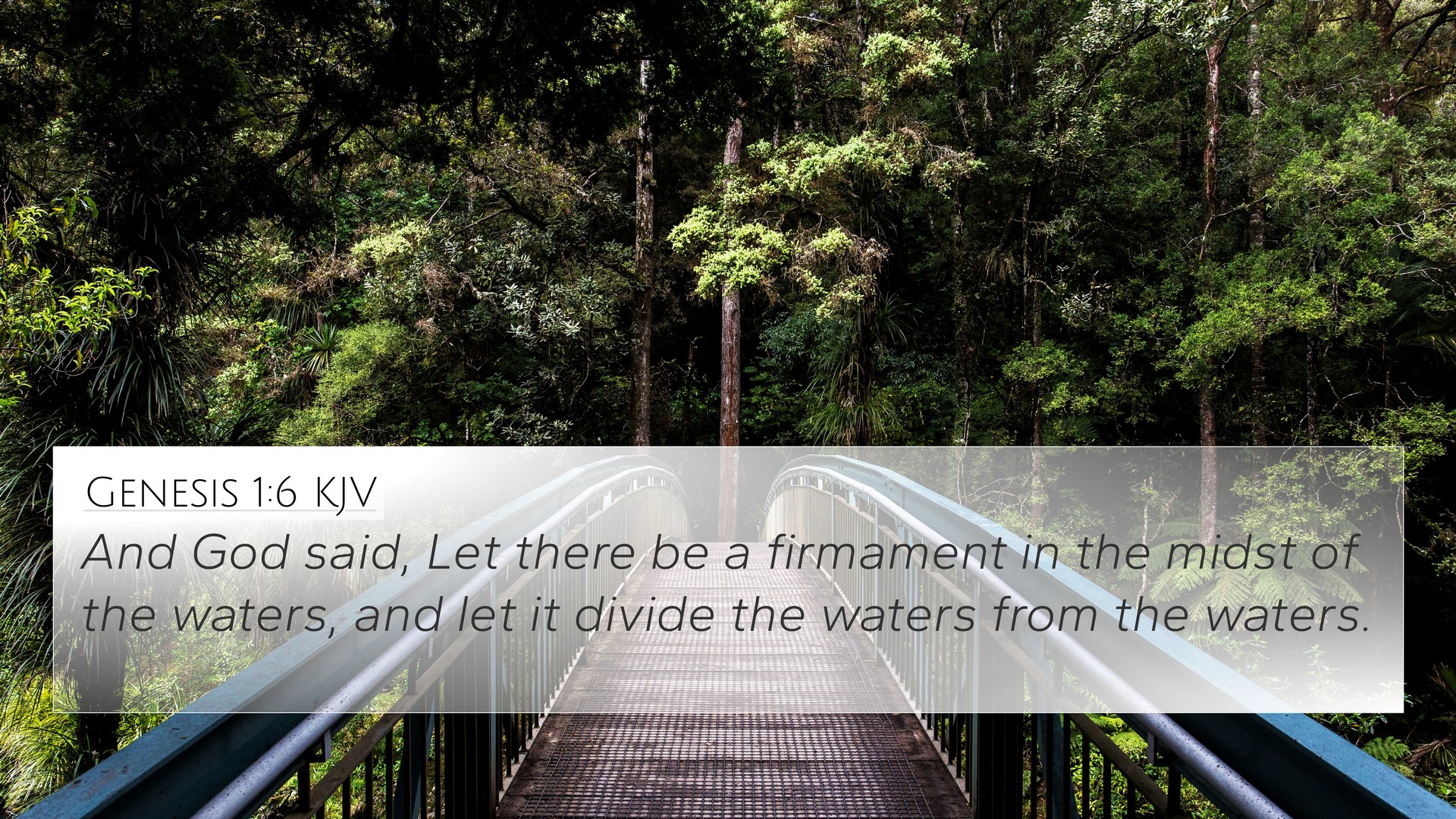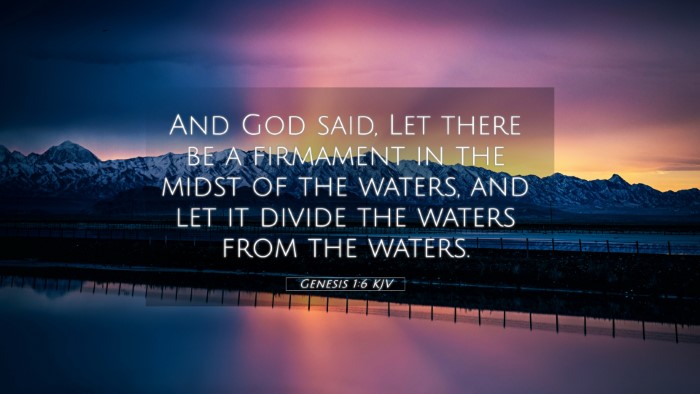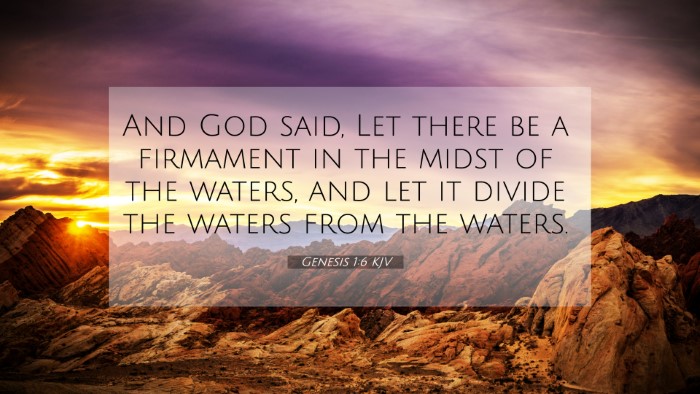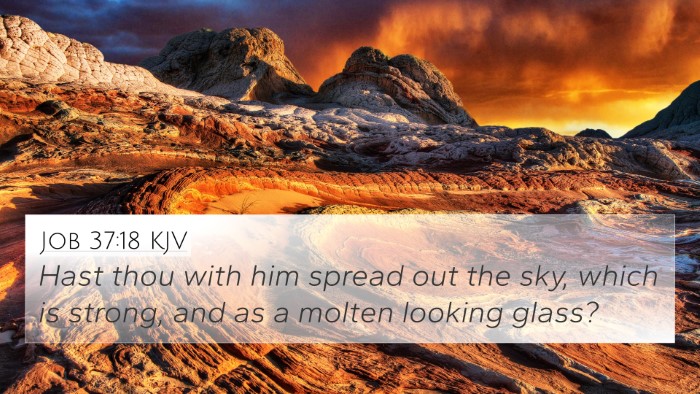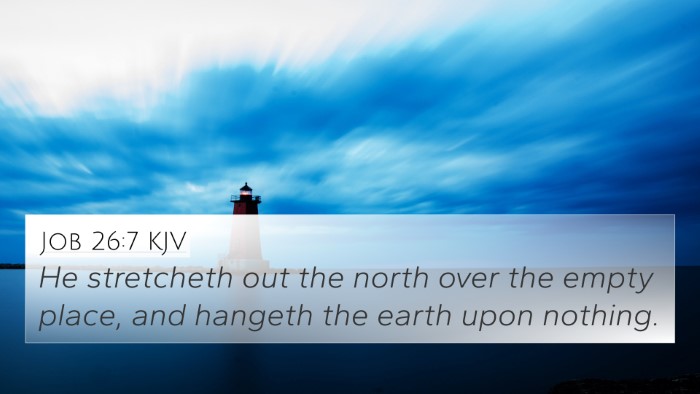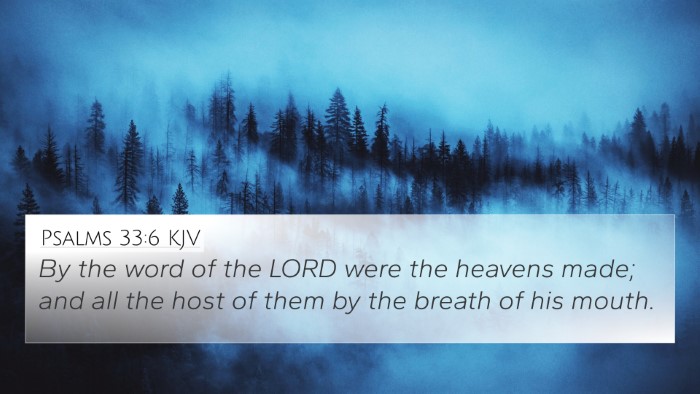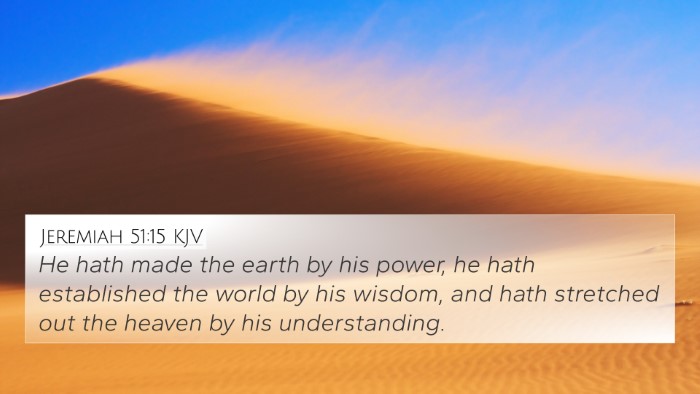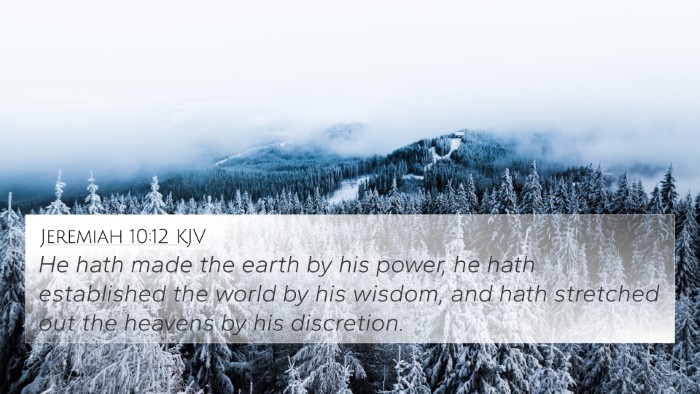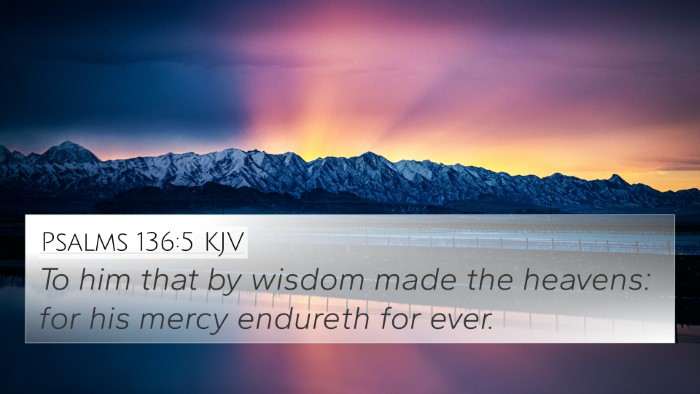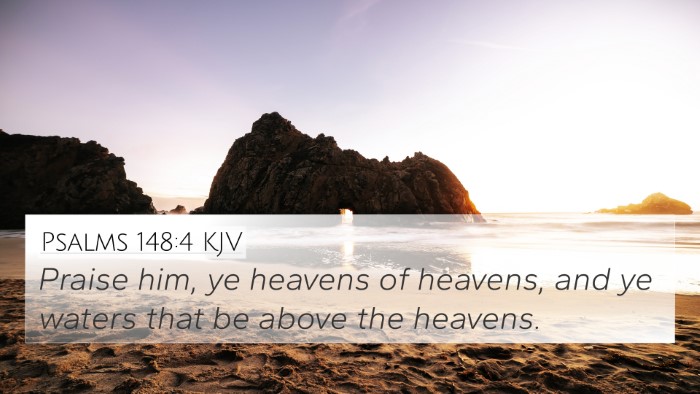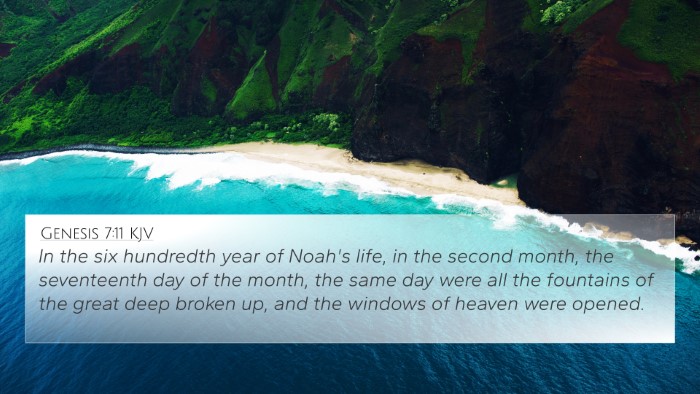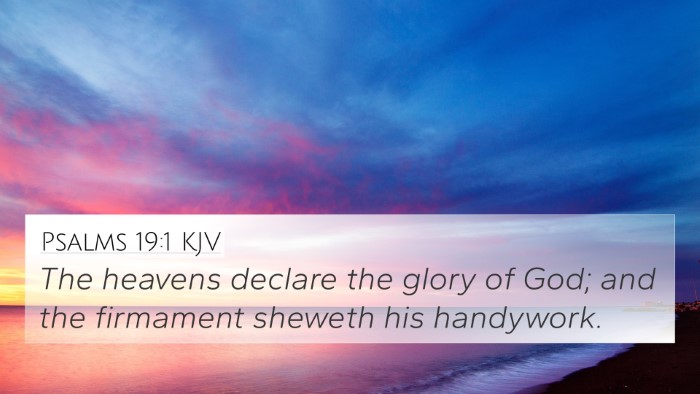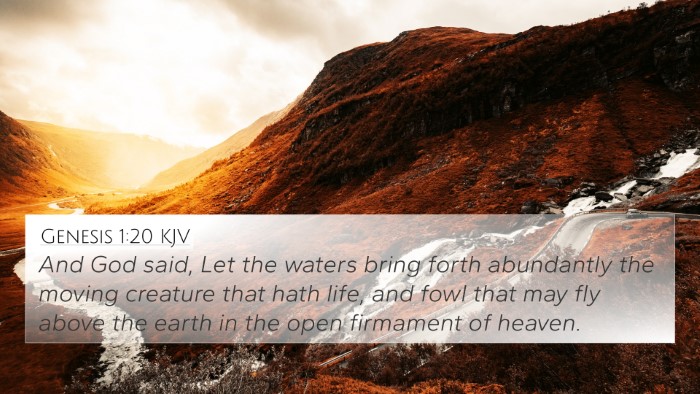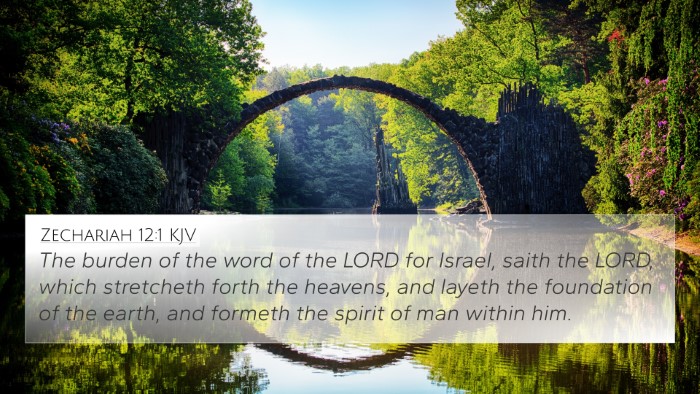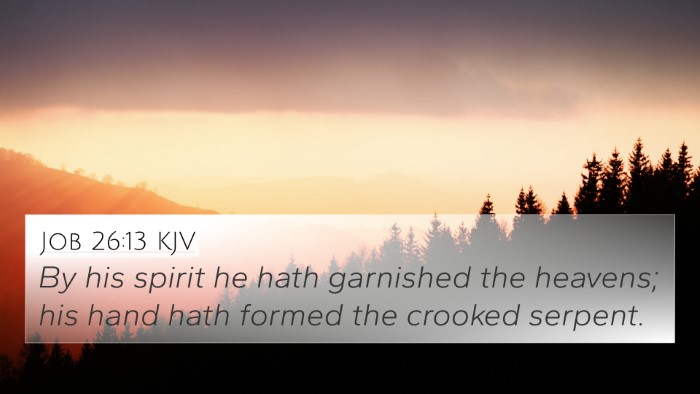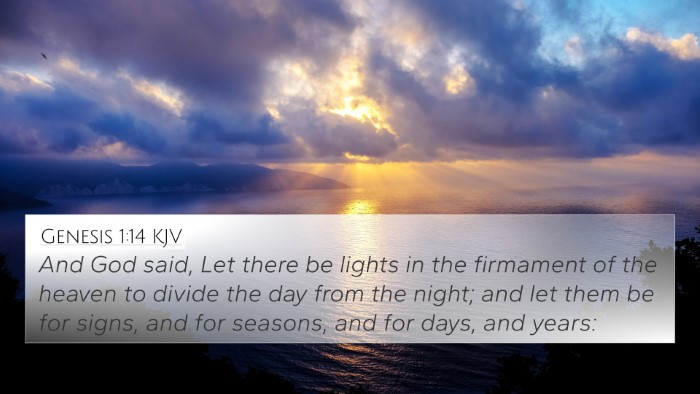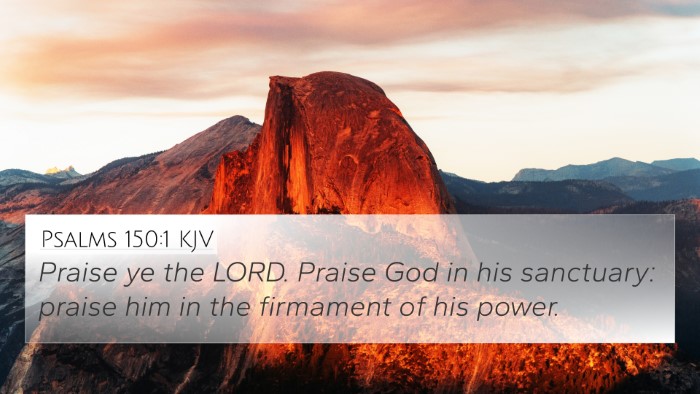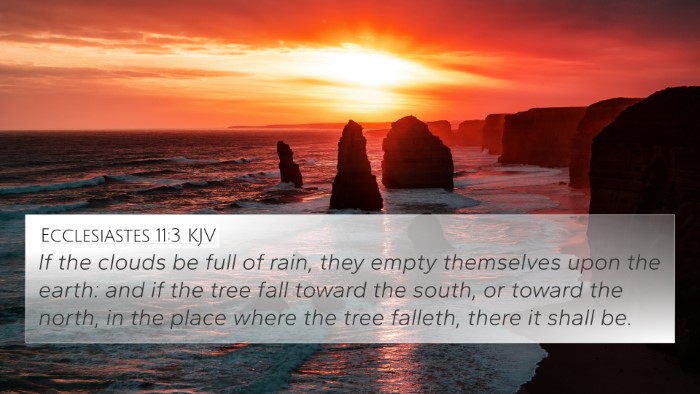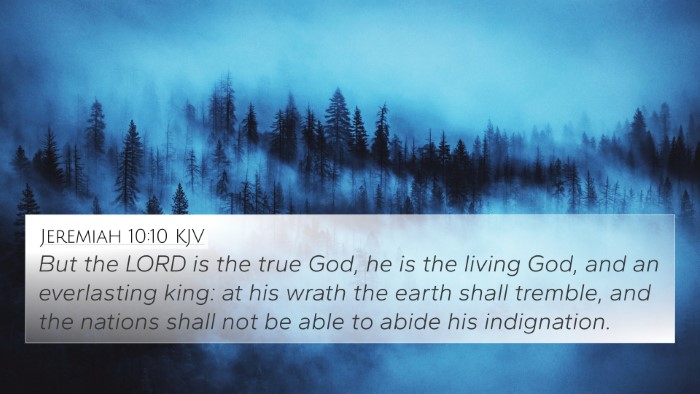Understanding Genesis 1:6
The verse Genesis 1:6 states:
"And God said, Let there be a firmament in the midst of the waters, and let it divide the waters from the waters."
This profound statement is pivotal in the creation narrative of the Bible, representing the moment God introduces the concept of the firmament—a barrier that separates the waters above from the waters below. Here we delve into its meaning by drawing insights from several public domain commentaries.
Commentary Insights
Matthew Henry's Commentary
Matthew Henry notes that the firmament, which in the original Hebrew is "rakiah," signifies something that is beaten out or spread. He emphasizes that God's command demonstrates His authority and power in creation. The firmament is seen as a structure that divides the chaos of water, suggesting order, separating the celestial from the earthly. Henry also compares this event to God's ongoing work in believers’ lives, creating order from chaos.
Albert Barnes' Notes
Albert Barnes elaborates that the term "firmament" refers to the sky or heavens, which was fashioned to maintain a balance in creation. He highlights the separation of waters, indicating that this was an essential act of God’s creation. Barnes explains that this division is not merely physical but also symbolic of God bringing clarity and structure to the universe, as well as establishing realms for human life.
Adam Clarke's Commentary
Adam Clarke addresses the linguistic nuances of "firmament," explaining how it indicates an expanse. He argues that this expanse not only separates but also serves as the dwelling place of the celestial bodies God will later create. Clarke draws connections to the idea that God's actions in Genesis demonstrate His sovereignty—transforming the unformed chaos of water into a structured and functional environment for life, reflecting His divine wisdom.
Bible Verse Cross-References
Genesis 1:6 can be connected to various other scripture passages that elaborate on the themes of creation, separation, and divine order. Here are 10 key cross-references:
- Isaiah 40:22: Referring to God as the Creator who stretches out the heavens.
- Psalm 19:1: The heavens declare the glory of God; the firmament shows His handiwork.
- Job 26:7: God hangs the earth on nothing, showing His authority in creation.
- Genesis 1:7: Further elaborates on how the firmament was made to divide the waters.
- Psalm 148:1-4: Calls upon the heavens to praise God, affirming the concept of the firmament.
- Matthew 24:29: Evokes the imagery of the heavens being shaken in end times, linking back to creation themes.
- Revelation 21:1: Speaks of a new heaven and a new earth, emphasizing the enduring nature of God's creation.
- John 1:1-3: Discusses the role of the Word in creation, echoing themes of divine order.
- Colossians 1:16: All things were created through Him, indicating Christ's involvement in creation.
- Hebrews 11:3: By faith, we understand that the worlds were framed by the Word of God.
Thematic Connections
The themes within Genesis 1:6 resonate throughout the Bible and can lead to a deeper understanding of God's character and purposes. By examining these connections, we can see a pattern of:
- Divine Sovereignty: God's authority over chaos and His ability to create order.
- Creation and Separation: The dichotomy between heaven and earth, spiritual and physical realms.
- Consistency in Creation: The ongoing narrative of God's creative power, illustrated through both the Old and New Testaments.
Using Cross-References in Bible Study
For those seeking to understand Scripture better, utilizing tools for Bible cross-referencing is essential. Here are some methods and resources:
- Bible Concordance: A comprehensive index to help locate specific verses.
- Bible Reference Resources: Offers contextual understanding and thematic studies.
- Cross-reference Bible study methods: Involves comparing passages to gain insights about connections and thematic parallels.
In Closing
Genesis 1:6 is a foundational verse that introduces profound truths about creation, divine order, and God's sovereign nature. By exploring the connections among Scriptures and engaging with biblical commentaries, we gain a more enriched understanding of this significant verse.
The exploration of these verses not only deepens one’s spiritual insight but also facilitates a better grasp of the inter-Biblical dialogue that underlines God’s narrative throughout the ages.
